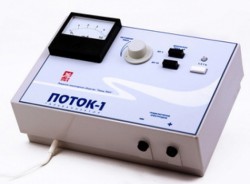What is medical law? What is the role of the state in Russian health care? Answers to these questions you will find in the article.
Content
Medical law in Russia
- Participants of legal relations in the field of health
- The role of the state in the health care system
- Health situation in modern Russia
In addition, the following subjects are involved in medical legal relations: bodies issuing medical institutions permission to exercise medical activities (licenses and certificates); Medical Associations; controlling organizations (trade unions, consumer rights protection companies, antimonopoly committee and.), Courts.

The role of the state in the Russian health care is quite strong and volume: first, the state proclaims the right to protect the health of citizens and guarantees the minimum amount of medical care provided for free on OMS. Secondly, it establishes the standards for the provision of medical care, mandatory for execution as public medical institutions and private. Thirdly, the Russian Federation controls the activities of medical institutions: establishes the necessary permits for the provision of medical services (licenses, certificates of medical institutions; diplomas and certificates of doctors), conducts accreditation of activities, establishes a list of supervisory organizations. Fourth, the state attracts persons guilty of violation of rights and legitimate interests, accountable. Fifth, the state involves the development of the health system of the subjects of the Federation and gives them the appropriate authority. In addition, the state determines the range of rights and legitimate interests of the person in the field of health care, protects them and guarantees the right to defense in case of their violation.
It should be noted that the present health situation in Russia, somehow: the lack of a clear regulation of activities for the organization and provision of medical care, the lack of uniform quality standards of medical care, low quality medical care in the OMS and the formality of relations in its system, the lack of legal education of health entities and other features of domestic health care - related to the inheritance of the system that existed in the USSR.
In the USSR, the health system was a practically closed system: regulation was carried out through official acts and was hidden both from patients and from doctors; Health financed exclusively by the state and, when declaring all medical care, free and affordable, was appropriate in quality. The protection of their health care rights in such conditions was too laborious and inffective.
The state of affairs has changed with the adoption of the Constitution and the Fundamentals of Legislation on the Protection of Citizens in 1993. So, the additional health systems (state, municipal, private), additional guarantees (compulsory and voluntary medical insurance), additional possibilities (paid medical services) were proclaimed. Further, health regulation was ordained right, and monitoring public authorities, medical associations, special organizations, public organizations, a separate citizen. The process of providing medical care has become more transparent, and, it means that the protection of its health care rights is more real.
Of course, the process of reforming the health system is still far from completion and requires certain efforts at the following points: the organization of high-quality and accessible medical care; organization of decent provision of medical personnel and medical institutions; legal regulation of the health care system; establishing relations in the health insurance system; Introduction of uniform quality standards of medical care.









